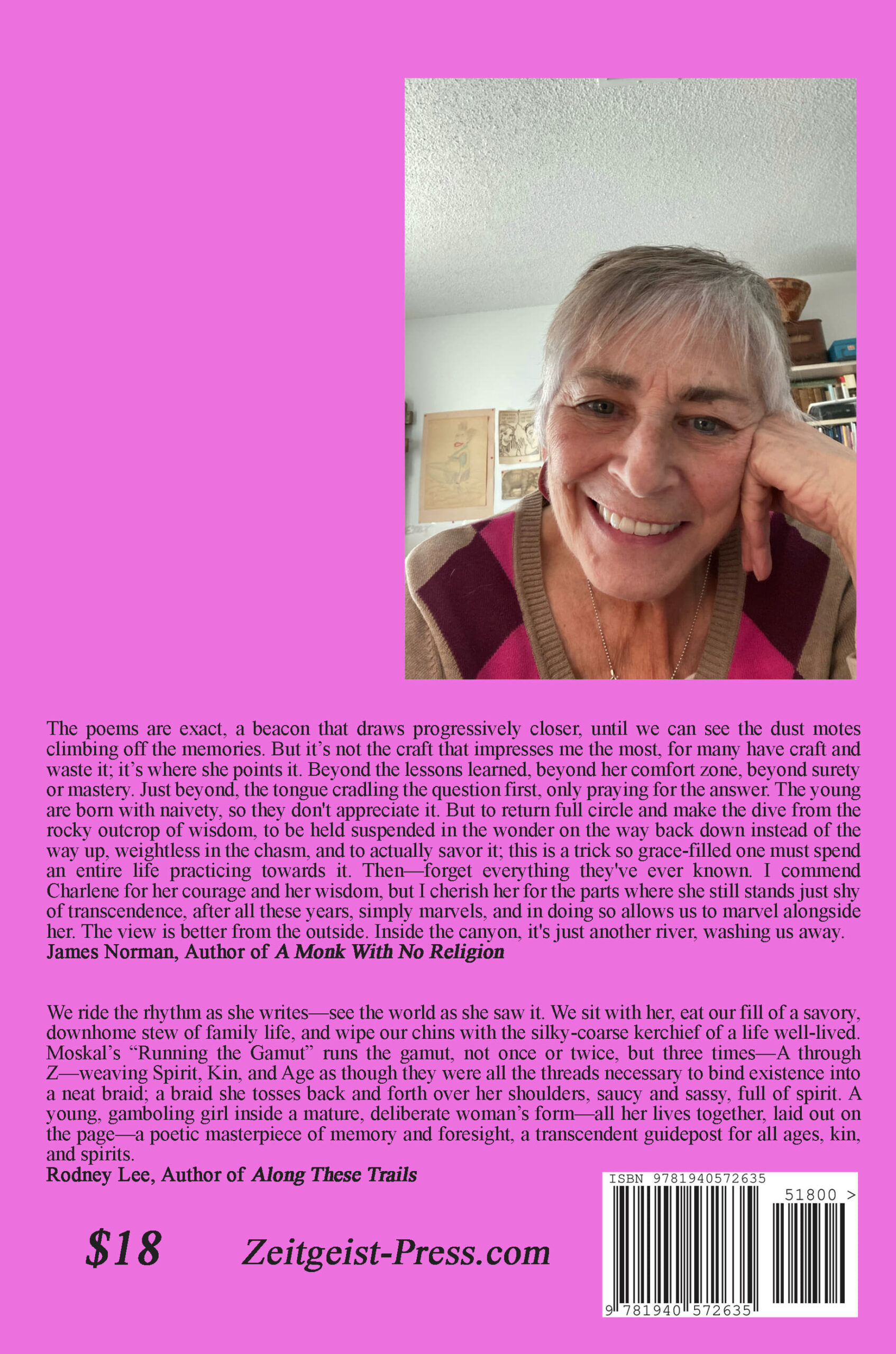“The poems are exact, a beacon that draws progressively closer, until we can see the dust motes climbing off the memories. But it’s not the craft that impresses me the most, for many have craft and waste it; it’s where she points it. Beyond the lessons learned, beyond her comfort zone, beyond surety or mastery. Just beyond, the tongue cradling the question first, only praying for the answer. The young are born with naivety, so they don’t appreciate it. But to return full circle and make the dive from the rocky outcrop of wisdom, to be held suspended in the wonder on the way back down instead of the way up, weightless in the chasm, and to actually savor it; this is a trick so grace-filled one must spend an entire life practicing towards it. Then—forget everything they’ve ever known. I commend Charlene for her courage and her wisdom, but I cherish her for the parts where she still stands just shy of transcendence, after all these years, simply marvels, and in doing so allows us to marvel alongside her. The view is better from the outside. Inside the canyon, it’s just another river, washing us away.” – James Norman, Author of A Monk with No Religion
“We ride the rhythm as she writes—see the world as she saw it. We sit with her, eat our fill of a savory, downhome stew of family life, and wipe our chins with the silky-coarse kerchief of a life well-lived. Moskal’s “Running the Gamut” runs the gamut, not once or twice, but three times—A through Z—weaving Spirit, Kin, and Age as though they were all the threads necessary to bind existence into a neat braid; a braid she tosses back and forth over her shoulders, saucy and sassy, full of spirit. A young, gamboling girl inside a mature, deliberate woman’s form—all her lives together, laid out on the page—a poetic masterpiece of memory and foresight, a transcendent guidepost for all ages, kin, and spirits.” – Rodney Lee, Author of Along These Trails





